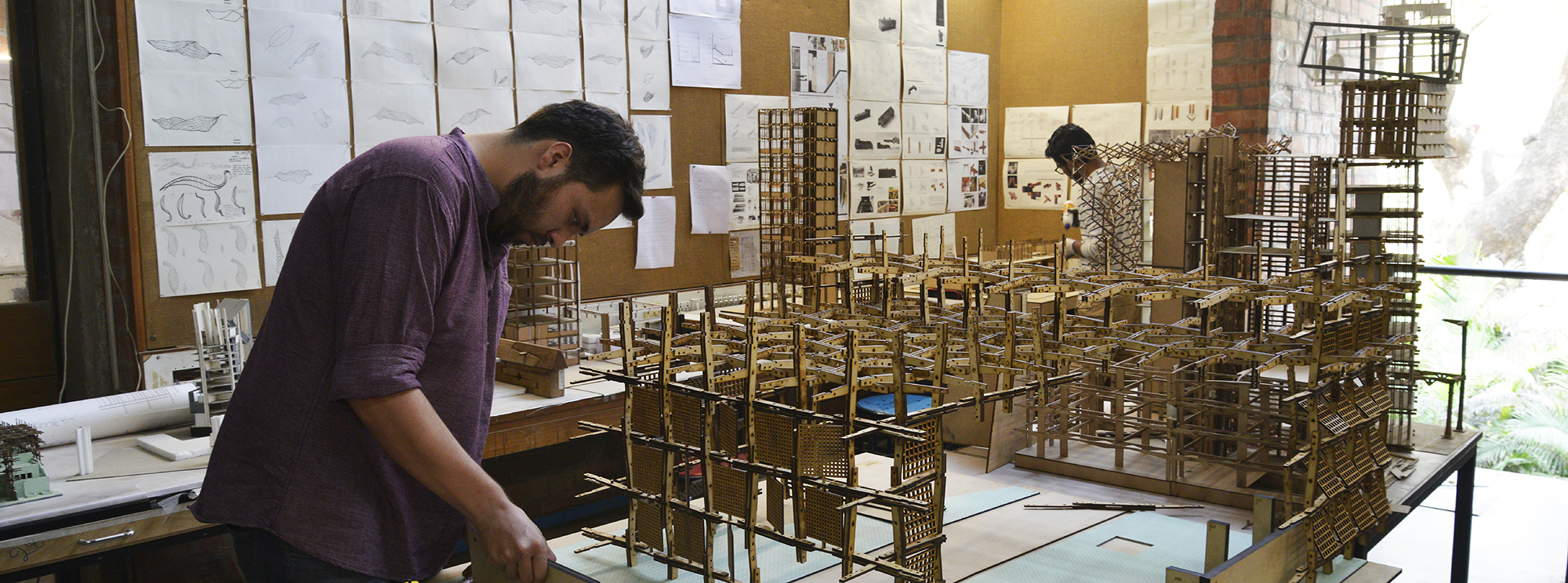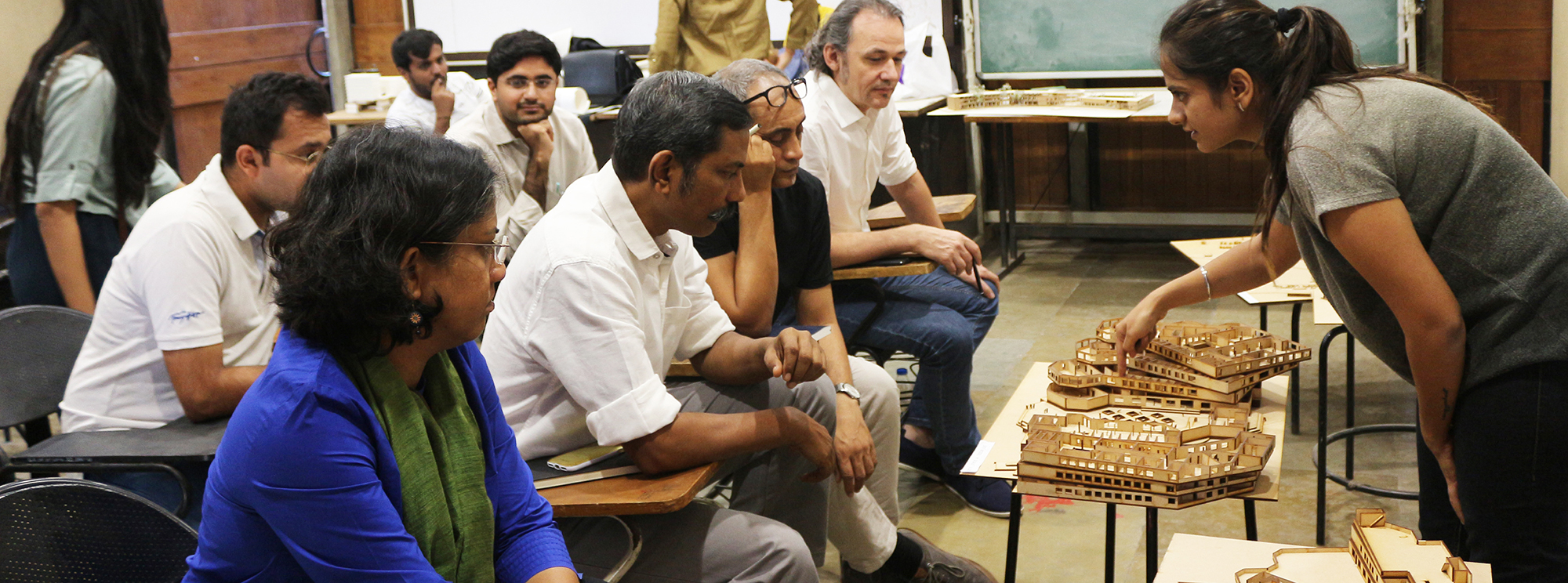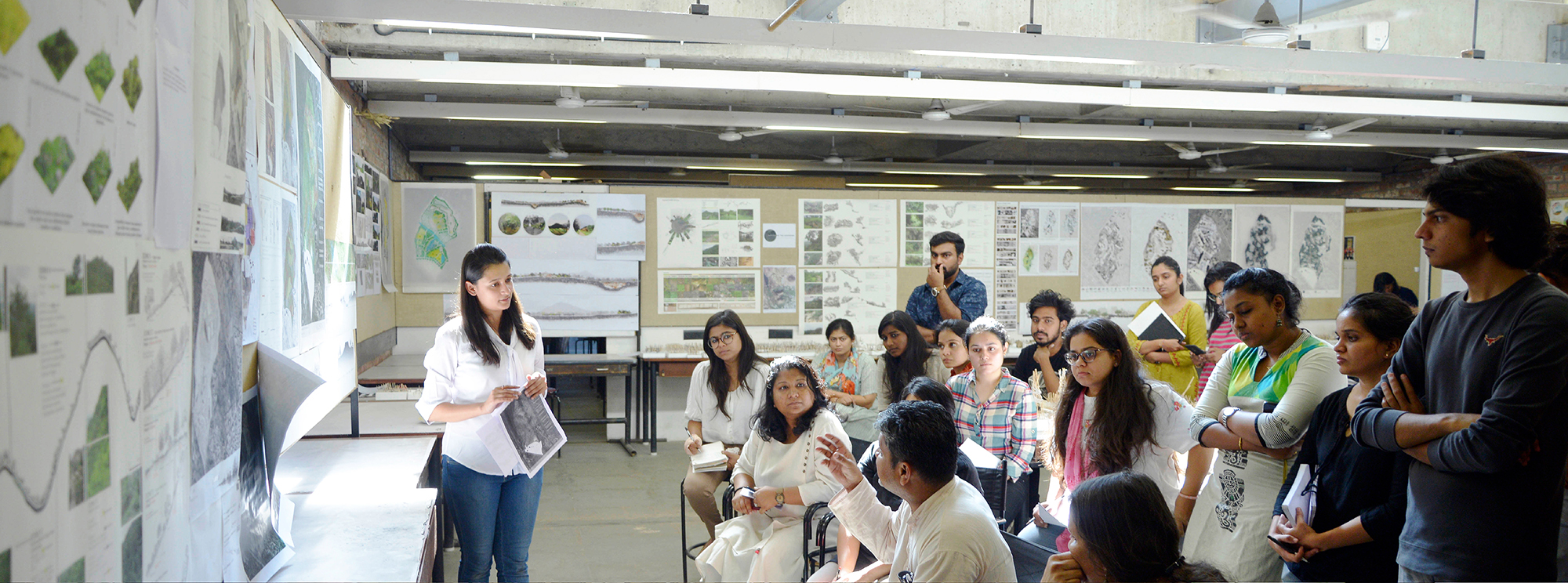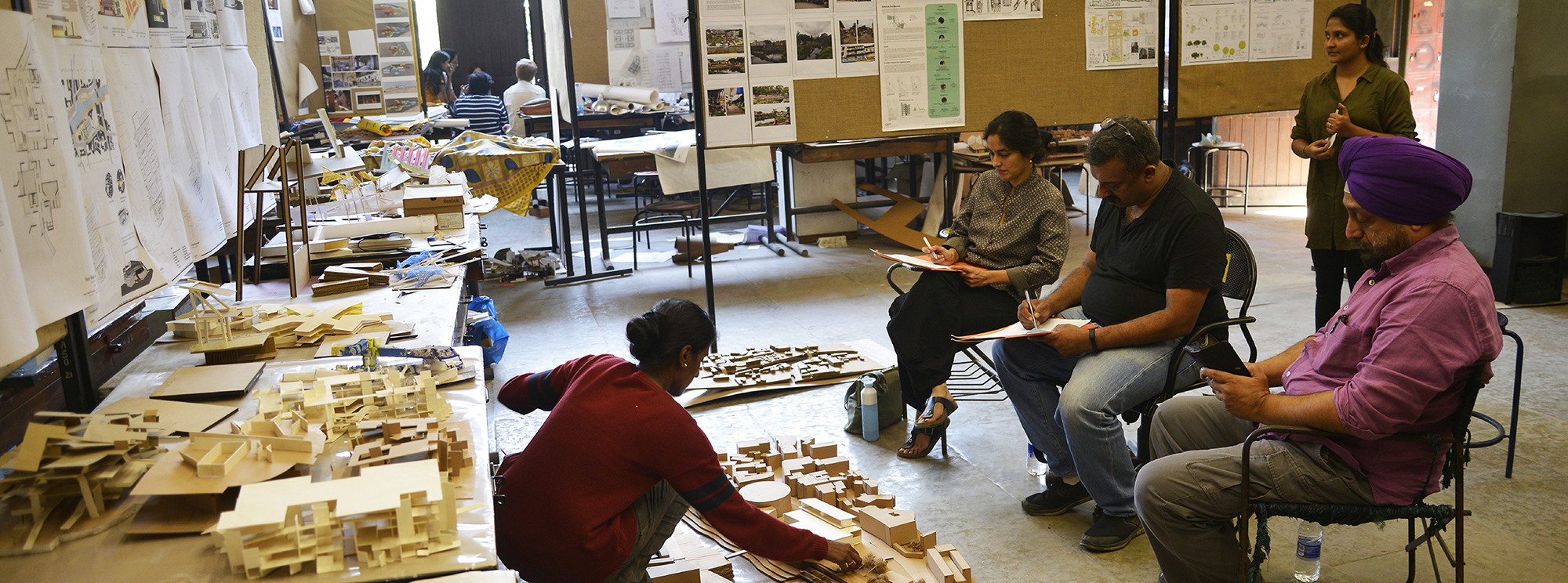Master’s in Conservation and Regeneration
Master of Conservation and Regeneration (MCR) program is a two-year curriculum that offers education to generate inventive, future-oriented roles for historical built forms promoting inclusive and resilient environments. It treats conservation as a progressive practice undertaking intellectual and design challenges crucial for making historical built environments suitable to contemporary society.
Through a predominantly studio-based learning method, the program offers a collaborative learning environment that combines archival and material research, and engages with emerging technologies and policy tools. Lectures and seminar courses expose participants to contemporary theories related to conservation, experimental and classical conservation approaches, international charters, and best practices from the country and across the world. Students can opt from a wide range of elective courses offered across disciplines to further strengthen their interests and skills. Through lab-based courses students learn about historical building materials and its repairs, and non-destructive methods of structural auditing. Workshops with master craftsmen expose students to hands-on skills of carpentry, metal work, brick-laying, stone work, among others. Through Directed Research Projects, students avail of an opportunity to work as research assistant to established researchers on an on-going research project. Regular site-visits to on-going conservation sites, one-on-one discussions with structural engineers and services experts support students in strengthening their conservation approaches. The program regularly invites well-known, established, and experimental practitioners to present their work.
Learning Objectives:
- Ensure graduates are equipped with academic and professional skills that enable them to make a positive contribution related to the conservation of historic built environments.
- Develop knowledge of the theoretical, historical, and professional context of architectural and urban conservation.
- Foreground the role of architectural conservation in the modern ecological agenda.
- Promote an awareness of traditional building crafts as a valuable cultural resource.
- Promote multidisciplinary collaboration and interaction with a wide range of professional bodies and individuals related to built environment.
- Ensure graduates cultivate confidence and an awareness of their responsibility as consultants in the field of architectural and urban conservation.
- Encourage reading of the historic environment as a whole and its use as an educational resource.
- Provide teaching informed by research and practice.
To know more about the program




